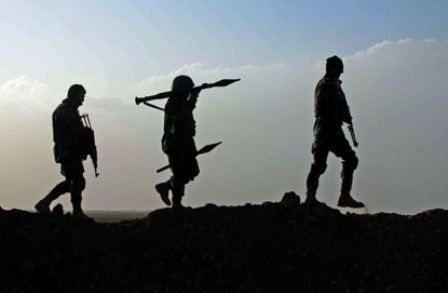Are the armed opposition political opponents?
The interpretation of President Ghani about the political opponents in the U.S.-close personalities and parties faced various reactions. President Ghani called the Afghan Government Armed Enemies, especially the Taliban, as the political opponents of the government and said that all Afghans are patriots, which included the Taliban. Though some analysts claimed that the Taliban are not citizens of Afghanistan and they are enemies of this country, they blamed Ashraf Ghani that he is not able to differentiate armed opponents from political opponents.
This group of analysts believes that the political opponents are those who accept the constitution, and with respect to the social values they struggle to gain political power. The ones, who have chosen war and violence for gaining power, are not counted as political opponents, but terrorists and there should be two options for them, either put their arms down, or be killed!
Experiences of Political Opposition in Afghanistan:
If we see the modern history of Afghanistan, it is clear that political opposition in the country always expressed violence. The reason is obvious; the experience of democracy in the history of this country has been short-term and combined with failures.
Experience of ten years of democracy, which is called decade of democracy, during the reign of King Zahir Shah, was not able to save the government from the royal intervention. Therefore the opponents of the government had chosen force, and by supporting the princes, who were in try of gaining power, like Dawood Khan they started a coup de ta and overthrew the kingdom. Meanwhile some other opponents of the government, who were fundamentalists, also hold arms against the regime. After a few years, communists, who supported Dawood Khan, also forced coup de ta and by killing Dawood Khan and his family members, they created a new system in the country.
War against communist regime lasted 14 years. During those years, the communist regime was calling their opponents terrorists and insurgents, and they believed that any type of attempt of peace with those groups was disloyalty to the regime.
National Peace of President Dr. Najib:
Finally the same regime was obliged to change its policy, and President Dr. Najib declared the policy of national reconciliation. Many times he asked the opponents to come and join the government. Even he was ready to give the position of defense ministry to Ahmad Shah Masood, but the opponents did not accept it.
Even that time (same as today) there were strong people in the People’s Democratic Party of Afghanistan (PDPA) who were not accepting Mujahidin as political opponents, and they were asking surrender the Mujahidin. They even accused Dr. Najib for compromise and surrender. As the Soviet Union was not supporting this orientation, they were abstracted and finally Dr. Najib’s regime was overthrown.
The battles of Mujahidin were also wars among political opponents. The Wahdat Party, and Islamic Party started war against Professor Rabbani’s reign. The only reason for those battles was that every party was thinking that the only way to create their favorite government was war. While General Dostum broke his loyalty and joined the opponents of Professor Rabbani’s regime, Professor Rabbani declared jihad against General Dostum.
While the Taliban came, the earlier oppositions threw their oppositions with each other, and no one told that there should be jihad against General Dostum.
While the Taliban were controlling 90 % of the Afghan land, Jabha-e-Muttahed (the United Front) was fighting against them. They were the political opponents of the Taliban’s regime. The reason of their war was that the Taliban did not want to divide power with them.
Afghanistan is not the West!
The definition of political opposition, which says that the ones with usage of arms and violence are not political oppositions, is possible in the countries with long term experiences of democracy; but in a country like Afghanistan, which is influenced by war and most of the political opposition leads to armed opposition, there is no evidence. “Even in England, the mother of democracy, republican movement in Northern Ireland, the IRA had chosen war, but the British government was willing to negotiate to resolve the problem with the group.”
Due to the mentioned experiences in Afghanistan, in the last presidential election the U.S. intervened and compromised both the opponents to participate in the government by the unity government, because the U.S. was afraid that the political opposition may cause to violence in the country.
Patriotism of Afghans:
The Afghan leaders spent their time in the neighboring countries and those countries were their hosts. The level of the influence of those countries over those leaders is not lower than the level of the influence of Pakistan over the Taliban. But, while those leaders returned to the country, their relations with those countries faded and in some cases it even caused dispute.
Therefore, the message, “The Taliban are supported by Pakistan, so they are not loyal to the national interests,’ may lead to the reactionary accusation; because the opponents of the peace with Taliban are supported by the Western countries, and there are cases which show that programs of the West is war for Islamic World, therefore those leaders are also not loyal to the national interests of Afghanistan.
The End

